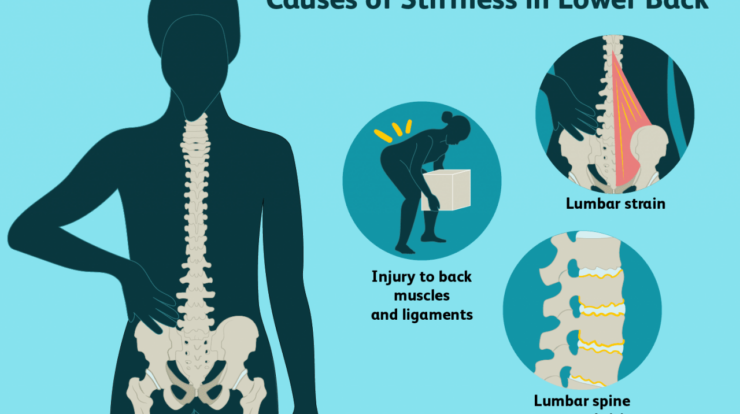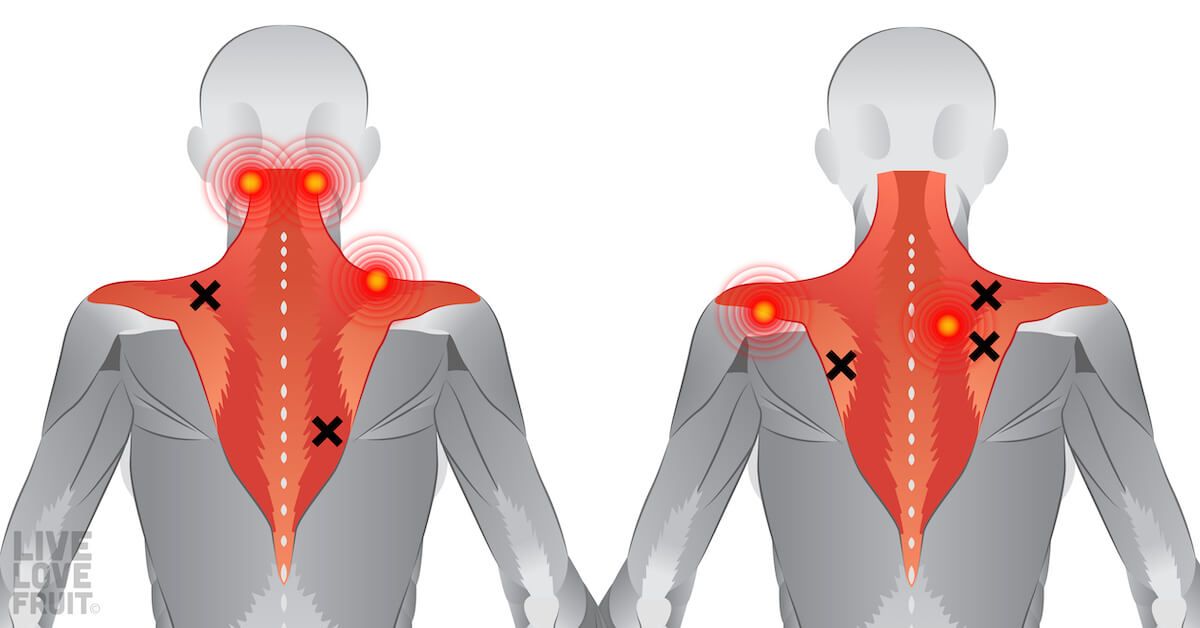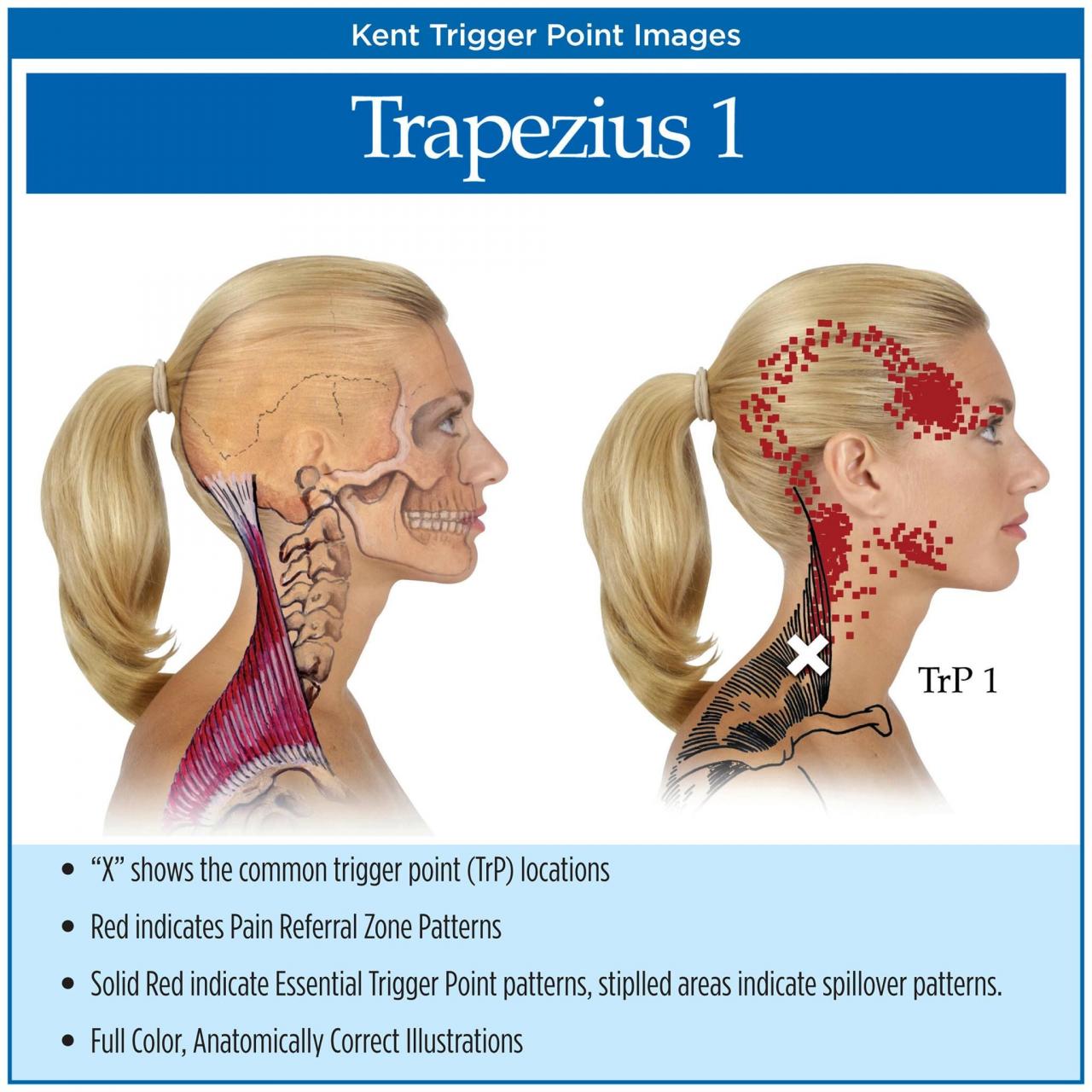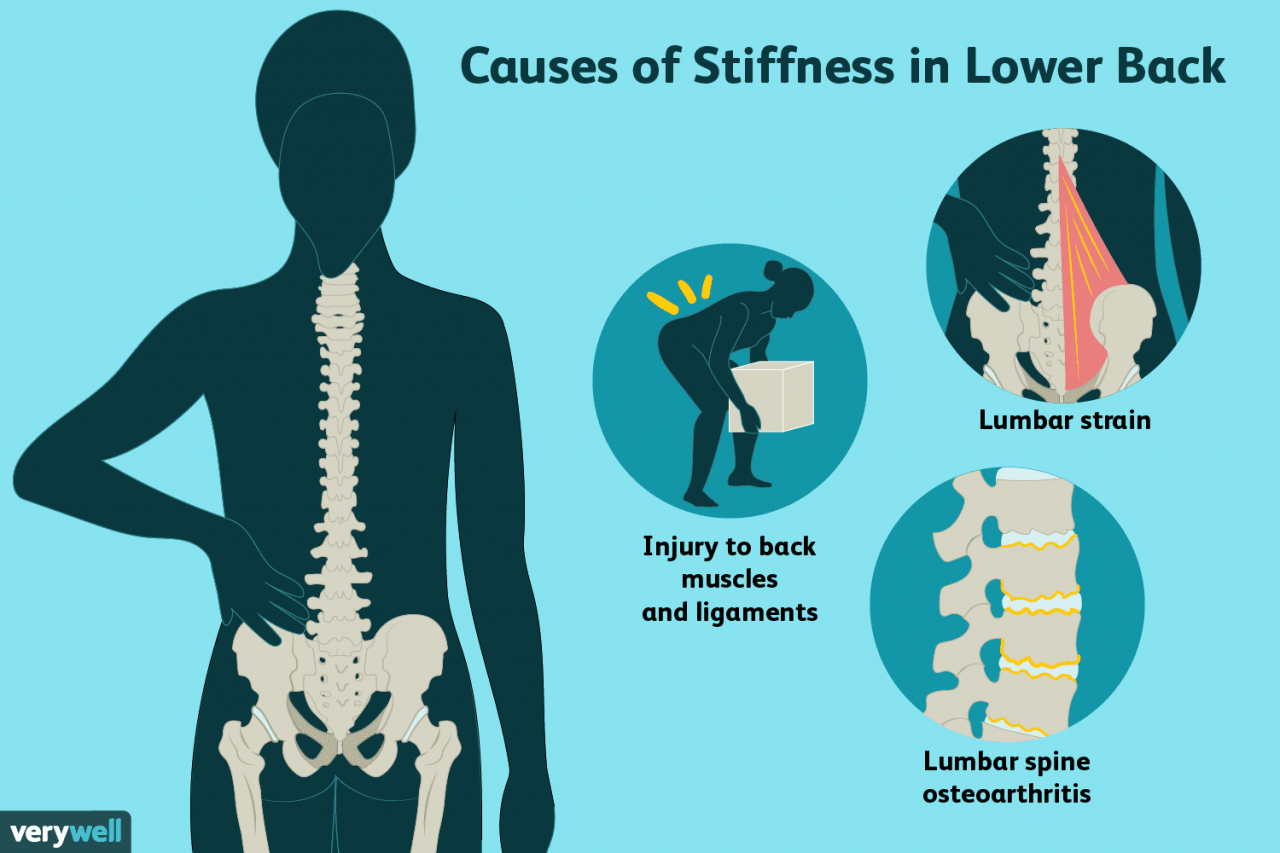
How can stiff and tight muscles result in back pain? Understanding the relationship between muscle tension and discomfort is crucial for maintaining back health. Stiffness and tightness in the back muscles can have a significant impact on posture, nerve function, and range of motion, all of which can contribute to pain.
Tight back muscles can strain the spine, leading to misalignment and poor posture. This can put excessive pressure on the vertebrae and discs, causing pain and discomfort. Additionally, stiff muscles can compress or irritate nerves in the spine, resulting in symptoms such as numbness, tingling, or shooting pain.
Stiff and Tight Muscles as a Cause of Back Pain: How Can Stiff And Tight Muscles Result In Back Pain?

Stiff and tight muscles in the back can be a major contributor to back pain. When these muscles are not functioning properly, they can put strain on the spine, leading to discomfort and pain.
Muscle tension can be caused by a variety of factors, including poor posture, repetitive movements, or injuries. When muscles are tense, they can become shortened and less flexible, which can limit range of motion and cause pain.
Impact on Posture and Alignment
Stiff back muscles can affect posture and spinal alignment by causing the spine to curve or shift out of its natural position. This can put strain on the ligaments and tendons that support the spine, leading to pain and discomfort.
Poor posture can also lead to muscle imbalances, which can further contribute to back pain. For example, if the muscles in the lower back are tight, the muscles in the upper back may become weak, which can lead to a forward-leaning posture.
Nerve Compression and Irritation
Stiff back muscles can compress or irritate nerves in the spine, which can lead to numbness, tingling, or pain. This is most likely to occur in the lower back, where the sciatic nerve runs through the buttocks and down the leg.
Back pain is a common complaint, and stiff and tight muscles can be a contributing factor. If you’re experiencing back pain, it’s important to see a doctor to rule out any underlying medical conditions. In the meantime, there are some things you can do to help relieve the pain, such as stretching, applying heat or ice, and taking over-the-counter pain medication.
Nerve compression can cause a variety of symptoms, including:
- Numbness or tingling in the legs or feet
- Pain that radiates down the leg
- Weakness in the legs or feet
- Difficulty walking or standing
Reduced Range of Motion
Stiff back muscles can limit range of motion in the back, making it difficult to bend, twist, or turn. This can affect daily activities, such as getting dressed, lifting objects, or playing sports.
Reduced range of motion can also lead to muscle atrophy, which can further weaken the muscles and make them more susceptible to injury.
Prevention and Treatment, How can stiff and tight muscles result in back pain?
There are a number of things that can be done to prevent stiff and tight back muscles, including:
- Maintaining good posture
- Stretching regularly
- Strengthening the back muscles
- Avoiding repetitive movements
- Using proper lifting techniques
If you are experiencing back pain, it is important to see a doctor to rule out any underlying medical conditions. Treatment for stiff and tight back muscles may include:
- Physical therapy
- Massage therapy
- Heat therapy
- Cold therapy
- Medication
Final Review

Preventing and treating stiff and tight back muscles is essential for maintaining back health. Regular stretching, exercise, and maintaining proper posture can help improve flexibility and reduce muscle tension. If back pain persists, seeking professional medical advice is recommended to determine the underlying cause and receive appropriate treatment.
Essential FAQs
Can poor posture cause back pain?
Yes, poor posture can put strain on the back muscles and spine, leading to pain and discomfort.
What are the symptoms of nerve compression in the back?
For those expecting mothers, Mother’s Day is a special time to celebrate the journey of motherhood. If you’re looking for Mother’s Day greetings for your sister, or wishes for your mom , there are plenty of resources available online. While you may be wondering if it’s appropriate to say Happy Mother’s Day to a pregnant woman, the answer is a resounding yes! Remember, motherhood is a journey that begins with pregnancy and continues long after.
Symptoms of nerve compression in the back can include numbness, tingling, or shooting pain along the affected nerve.
What exercises can help improve flexibility and reduce muscle tension in the back?
Exercises such as yoga, Pilates, and swimming can help improve flexibility and reduce muscle tension in the back.







